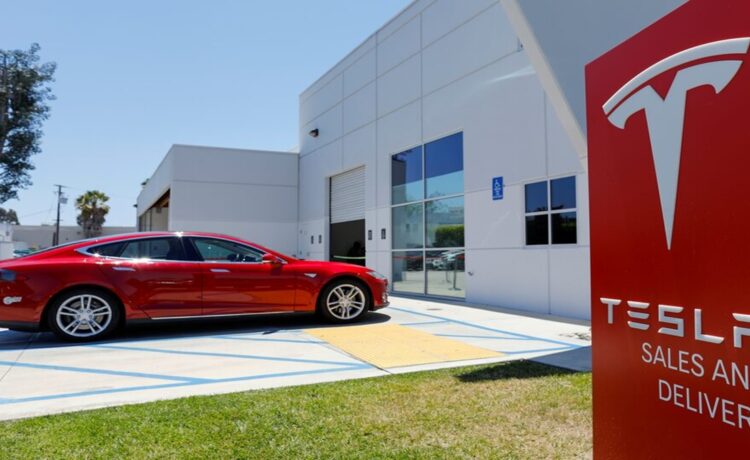Are the good old days for Tesla shareholders left to be viewed in the rear-view mirror? Tesla’s stock price has fallen since its 2021 peak of roughly $339. Tesla’s shares are down nearly 28% this year and by the same proportion over the last 12 months. Competition is gearing up and sales are declining for the company but CEO Elon Musk plans to release affordable models in 2025. It remains to be seen if the glory days for Tesla investors will return.
In an interview with Financial Express Online, Yogesh Kansal, Cofounder & CMO, Appreciate talks about the EV
Given Tesla’s recent performance and the current downturn in the EV market, how confident are you in Tesla’s future growth?
The Tesla bet is a long-term play on the capability of the most valuable automaker in the world to upend the current downturn narrative in the EV segment as well as a bet that Tesla will open up more tech segments like robots, solar power, energy storage, etc.
Recent EV growth has been slower than many expected, partially driven by the higher cost of EV cars, worries over battery life
Admittedly, these are challenges but not the kinds that cannot be overcome. Tesla plans to launch a new more affordable generation of vehicles in FY25, renew investment in their charger network, and improve battery technology.
Besides focusing on these, Tesla’s claims of unveiling a fleet of robo taxis this year will open up a large new revenue stream boosting its share price. Considering the complexity of scaling in the automotive market, there are very few players that are so well placed to capture the coming wave of automotive and EV growth globally.
Considering the current downtrend in Tesla stock prices, should the Indian investors look to capitalise on this opportunity to accumulate more shares?
Trying to time the markets is a challenging exercise. Rather than timing the markets, investors would be better off playing on the company’s strong fundamentals. To date, Tesla has been a forerunner in terms of technological innovation and disruption. It is well placed to capitalise on the continued growth projected for EVs. Investors interested in the automotive space should consider accumulating TSLA with a long-term perspective.
Another factor that investors ought to account for is the long gestation periods that a company’s operations often go through. It was in 2021 that Tesla first declared its first full-year profit, which is 18 years after its incorporation in 2003. The wait, by the way, was not without its rewards: Tesla has delivered a whopping 1,300% return in 5 years.
How do you view Tesla’s long-term growth potential in light of their future projects like the dedicated robotaxi fleet and ride-hailing network?
Tesla gave investors a teaser of the ride-hailing app in late April. With the unveiling of the ride-hailing app, users will be able to summon self-driven cars at the click of a button. Users will be able to adjust the car
Evidently, this initiative will threaten the likes of Uber and Lyft since the biggest cost they incur is that of drivers. If Tesla manages to pull off autonomous cars, it will be a major game-changer for the company. Of course, this space is not without competition and there are other companies like the Alphabet subsidiary Waymo that have deployed driverless cars in a few cities in the US, however, analysts project that Tesla would be able to catch up assuming they can crack the technology.
Investment bank UBS has valued the total revenue opportunity for robotic cars at a whopping $2 trillion. This exceeds the value of the total US automotive market. If Tesla, by virtue of its large on-road network of cars and tech prowess, bags a sizable chunk of this market, we can expect a significant upward revision in Tesla’s valuation.
How should Indian investors perceive Tesla’s current performance and the recent challenges in the EV market?
For now, given the Tesla stock price correction over the last couple of years, Indian investors should be in a cautious optimism mode in the near term. Greater clarity on sales volumes in the second quarter, the anticipated unveiling of robo taxis in August, and the launch of the new generation of more affordable cars will define Tesla’s near-term outlook.
What is your perspective on Tesla’s aggressive price cuts and their impact on the overall EV market?
Tesla took the lead and in January last year kick-started the aggressive price cuts on EVs, going as far as doling out 20% discounts. Naturally, other companies in the fray, like Ford
The EV market has gone through a volatile cycle post-pandemic. In the immediate Covid aftermath, the markets experienced an explosion of pent-up demand, only for the demand growth to plummet by 2023-end. Consequently, some automakers are left in the lurch with capacities dedicated to meeting the earlier demand growth, which has now slowed.
Currently, we are in a transitionary period. With Tesla slated to launch a new generation of affordable EVs, we could see it deliver a better value proposition to customers that will, hopefully, revive demand.
How do you compare Tesla’s market performance to its competitors in the EV industry
Tesla has several competitors across traditional global players like Ford, GM, Volkswagen as well as newer or regional entrants like BYD, Nio. Many of the EV forward auto
On a go-forward basis in the EV segment, the Chinese automaker BYD, in which Warren Buffett also has a stake, is proving to be a key player to watch out for. It made headlines in the last quarter of 2023 by overtaking total EV deliveries made by Tesla. Tesla’s three-pronged plan to release new affordable vehicles, cracking autonomous cars, and launching in adjacent sectors like robots, will be critical to fend off increasing competition.

